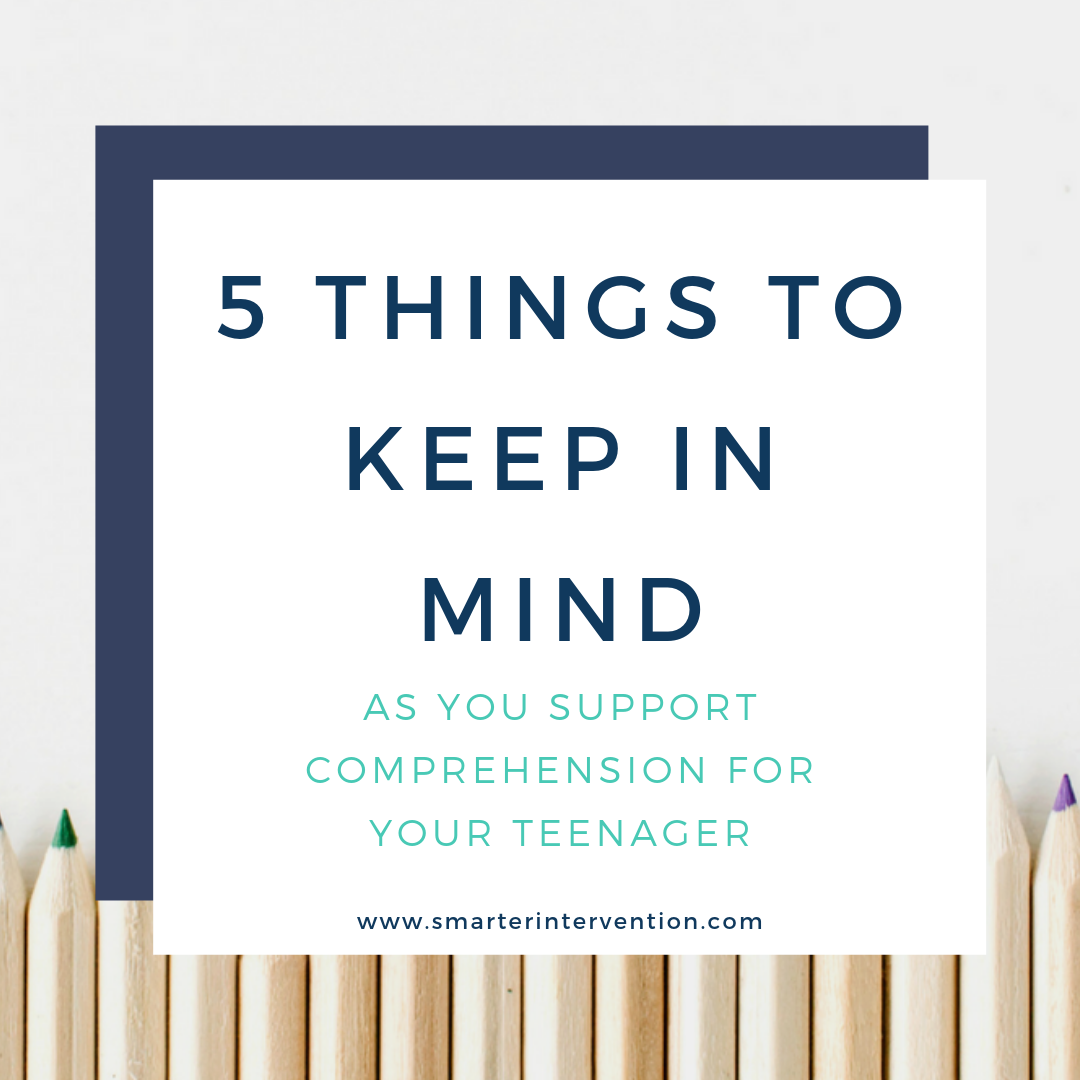Science-based literacy resources and articles
for families, educators and schools
Search by Category:
Categories
- Advocacy
- Authentic Literature
- Business
- Comprehension
- Data Tracking
- Differentiation
- Dyslexia
- Evaluation and Assessment
- Executive Functioning
- Games & Activities
- Helping My Child At Home
- How To
- IEP/504 Plan
- Lesson Planning
- Math
- Online Intervention
- Organization
- Parents
- Phonics
- Phonological Awareness
- Reading Comprehension
- Reading Fluency
- Research
- SLP
- Spelling
- Vocabulary
- Writing
5 Things to Keep in Mind as You Support Comprehension for Your Teenager
All things change right...from having your little one on your lap to having a moody teenager that believes nothing you do is good or right. Well just as they change - the strategies we use to help them must also change. Unfortunately for many readers, especially struggling readers - the struggle to fly under the radar and just keep up in the classroom, came at the cost of actually developing strategies and supports that would help them really understand their reading.
Phonemic Awareness & Phoneme Segmenting for Older Students
We know the importance of phonemic awareness for our young students - but we absolutely cannot forget about this literacy skill when it comes to working with our older students!
When should a student take responsibility for their learning?
Empower students with learning disabilities to become independent learners! Explore the journey of developing intrinsic motivation and building positive relationships. Unlock the potential for self-discovery, embracing unique learning styles, and fostering strengths. Middle school becomes a crucial phase for cultivating skills that extend beyond interventions, paving the way for a lifetime of confident, independent learning. Dive into the transformative approach advocated by Barbara McCombs to create a supportive learning environment.
One Major Reason Your Reading Intervention May Not Be Working
Discover the key to unlocking consistent growth in reading intervention: engagement. Dive into creative strategies to make learning exciting, turning dry material into dynamic games. Move beyond traditional worksheets and explore interactive methods that keep students connected and excited about learning!





